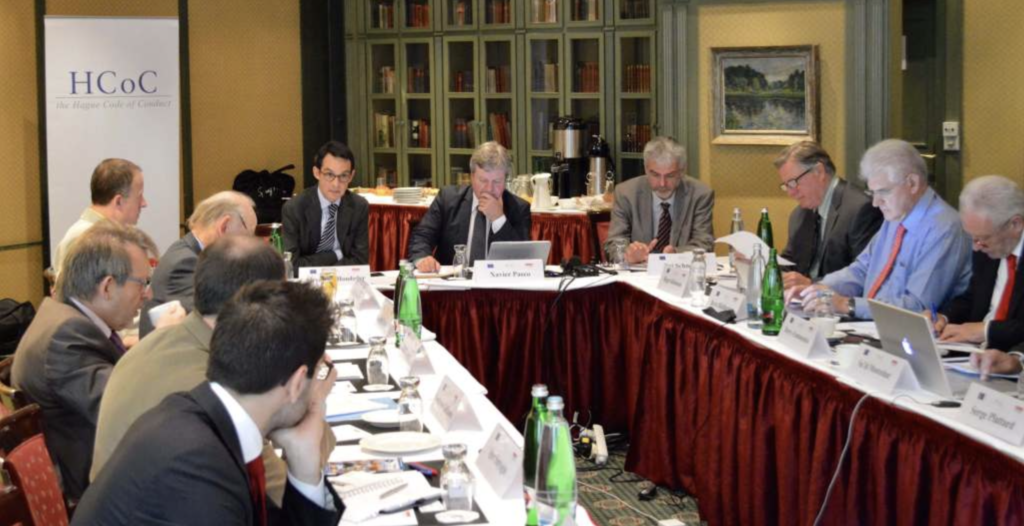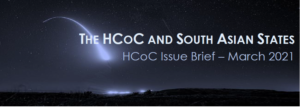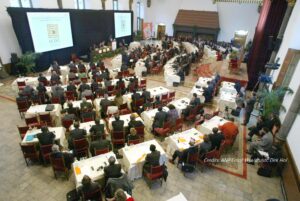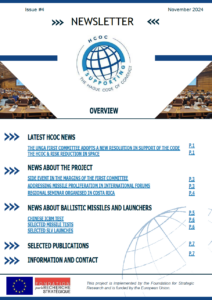Awareness-building session on HCoC in Prague
4 June 2014
On 4 June 2014, the FRS organised, on behalf of the European Union, an awareness-building session in Prague about dual-use technology and knowledge transfer issues in order to prevent them in the field of ballistic missiles. The session allowed considering both trends in the technology transfer for ballistic missiles and what could be promoted to prevent it at an early stage. This workshop gathered experts from scientific, space and industry communities of HCoC subscribing and non-subscribing States.
AGENDA
WELCOMING REMARKS
- Alexandre HOUDAYER, Secretary General, Foundation for Strategic Research (FRS)
I/ HCoC & TECHNOLOGY ISSUES
- Dr. Xavier PASCO, Senior Research Fellow, Foundation for Strategic Research (FRS)
- Dr. Serge PLATTARD, Resident Fellow, European Space Policy Institute (ESPI)
II/ PERSPECTIVES ON PROLIFERATION CONTROLES OF HIGH-TECH PRODUCTS IN TE LAUNCHER & MISSILES FIELS
- H.E. Carlo TREZZA, Chairman, Missile Technology Control Regime (MTCR)
- Dominique GUILLAUME, Chief Export Control Officer, Airbus Defence and Space

III/ ISSUES AND INSTRUMENTS IN THE CONTEXT OF NON-PROLIFERATION & THE NATURE OF TECHNOLOGY CONTROL REGIMES
- Dr. Jan WOUTERS, Director, Leuven Centre for Global Governance Studies
- Roger ROBINSON, Chairman and Co-founder, Prague Security Studies Institute (PSSI)
WRAP-UP SESSION: HCoC & NON-PROLIFERATION EFFORTS


